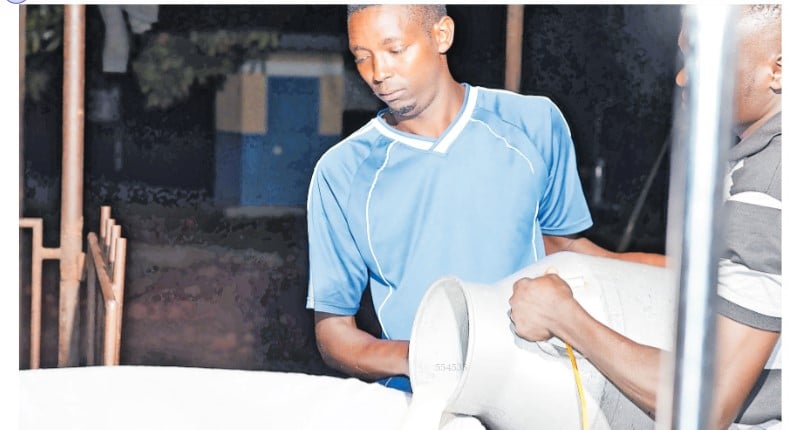Prime
Why the menstrual cramps

Many women experience pain or discomfort at the time of their periods. For many, the pain or unease is so severe that it interferes with their daily lives or requires special attention. Agnes K. Namaganda finds out the cause of the cramps
Most women don’t even have to count their days to know when their next period will be. A mildly painful on-and-off knot in the tummy that sometimes, gradually becomes severe will signal her next monthly cycle, and that she needs to seriously start carrying around her tool kit of painkillers, a lesu (wrapper) for some in the event of a bloody mess, sanitary towels or whatever it is she uses to deal with the situation.
Even with the strongest pain-killers, some women will still experience excruciating pain prior to and during the course of their period. But what exactly causes periods to be painful? First of all, it is important to understand how a period happens.
Dr Vincent Karuhanga of Friends’ Polyclinic on Uganda House says that when a woman’s ovary releases an egg, the uterus lining thickens in preparation for a possible pregnancy.
If the egg is fertilised by a sperm, it will travel through the fallopian tubes down to the uterus where the foetus will start developing. In this case, there will not be a period.
A monthly period happens when the egg is not fertilised and thus gets re-absorbed in the ovary. When the uterus through hormonal exchanges notes that no ovum is forthcoming, it sheds its walls that results in the bloody discharge called a menstruation period.
Dr Karuhanga explains that a hormone called prostaglandin is responsible for contracting the uterus to expel this blood. This contraction is what causes the pain. “It is this same hormone that causes pain during labour as it contracts the uterus to cause child birth,” he says.
He refutes the fallacy that pain during periods in young girls is due to the mouth of the womb being small. “periods become less painfull with age especially after delivery and has nothing to do with the small mouth of the womb.”
Not all pain during periods is normal though. And Dr Karuhanga gives four other possible causes of pain during the menstrual cycle:
That pain could be as a result of pelvic inflammatory disease, an infection that leads to blockage of fallopian tubes and is associated with infertility. Treatment of the infection usually reduces period pains.
It could be fibroids but these do not show symptoms before age 25. After this, the woman may have painful periods accompanied by an increased blood flow with increased chances of infertility.
Intra-uterine contraceptive device, a birth control method, may also cause painful periods.
Increased emotional problems may also result in painful periods.
Sometimes, a membrane that is supposed to be in the uterus embeds somewhere else like in a muscle or in the umbilicus scar (navel). These too may lead to painful periods with the latter sometimes causing bleeding through the navel.
To deal with painful periods, Dr Karuhanga suggests that such women see a doctor for a prescription of appropriate pain-killers.




